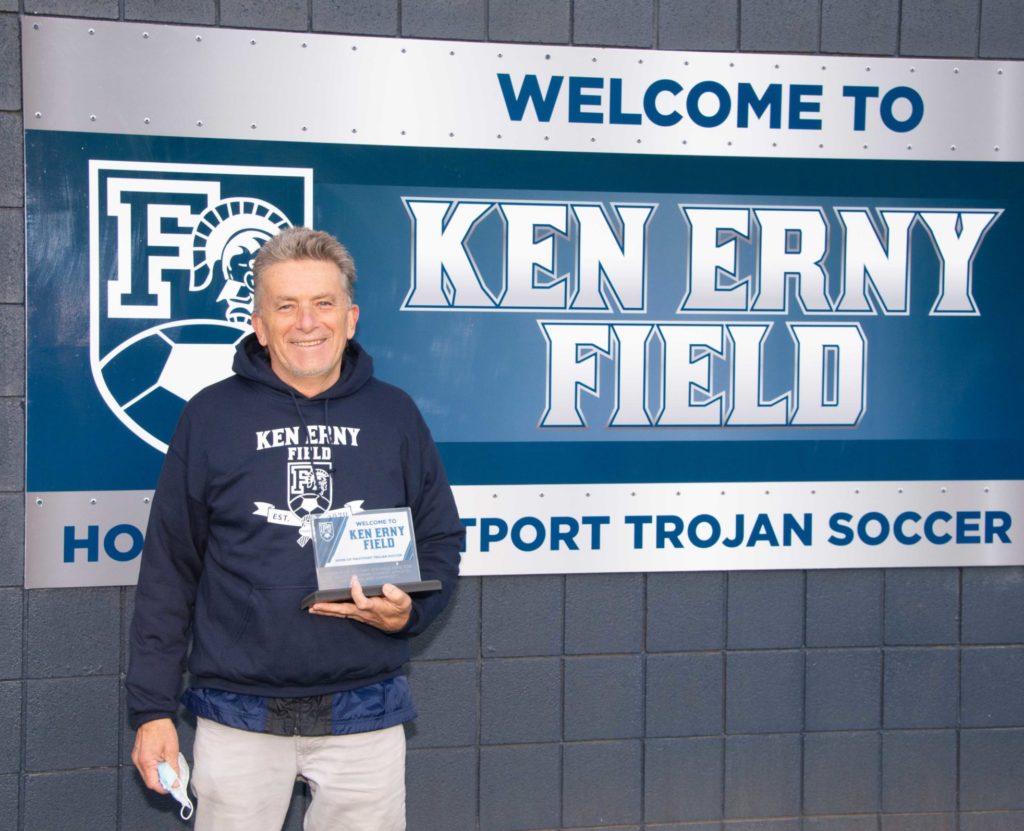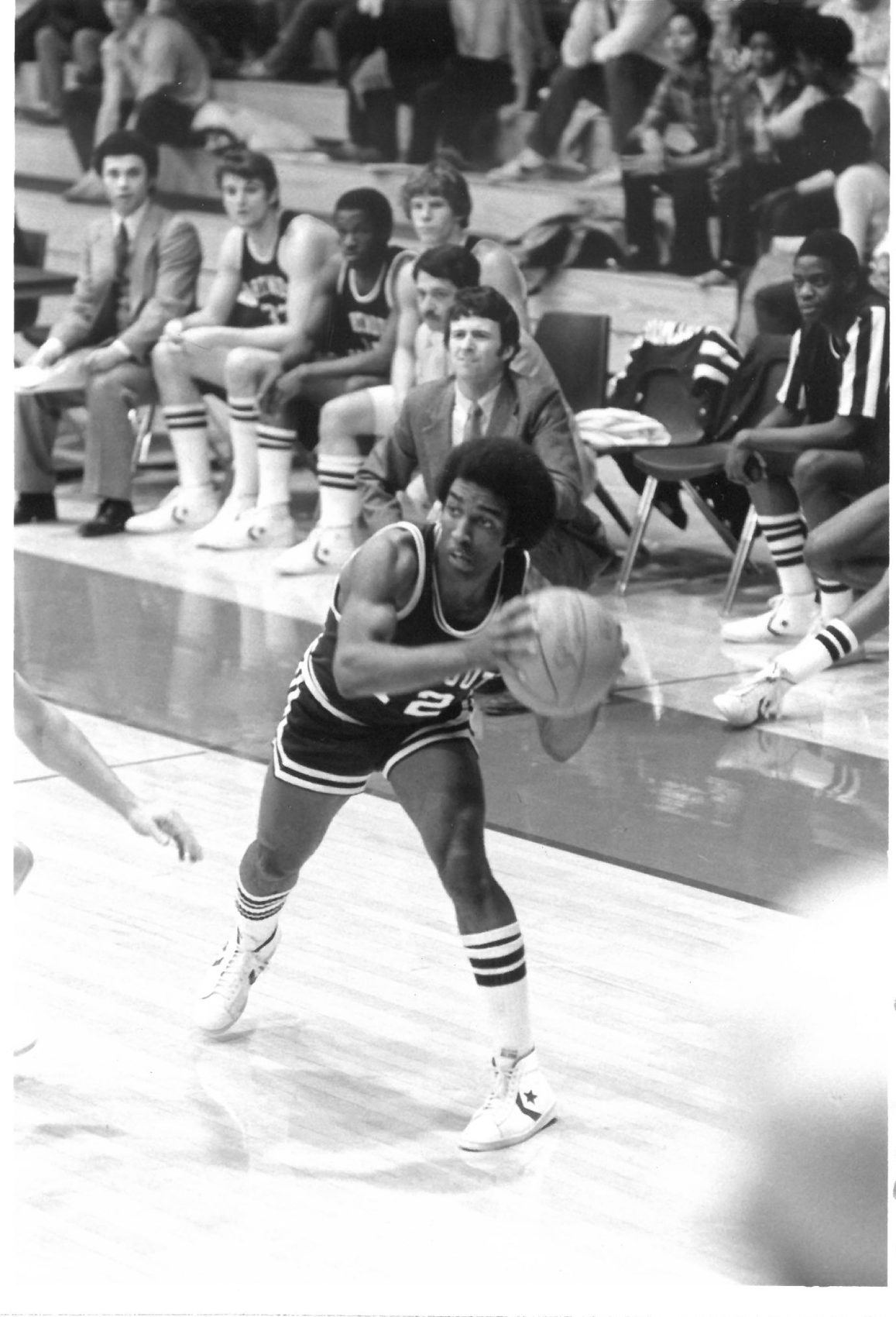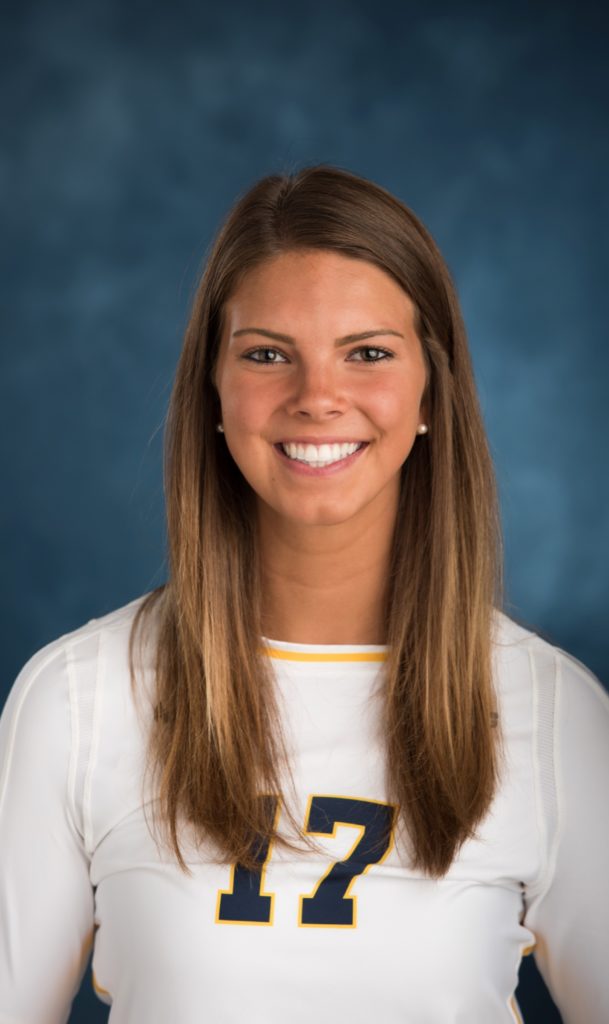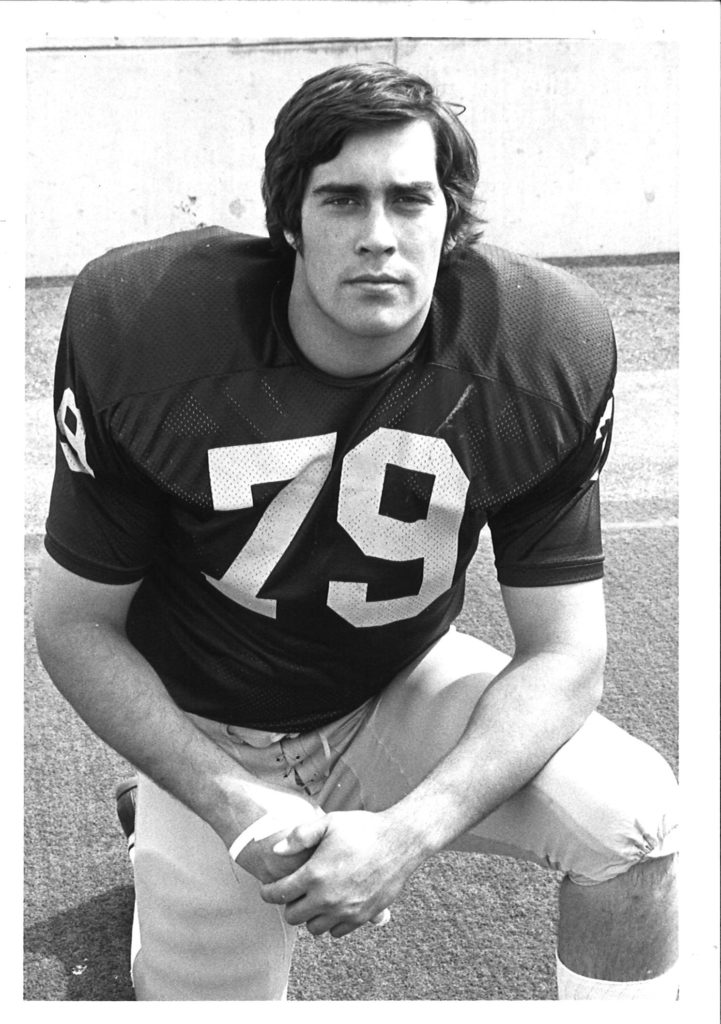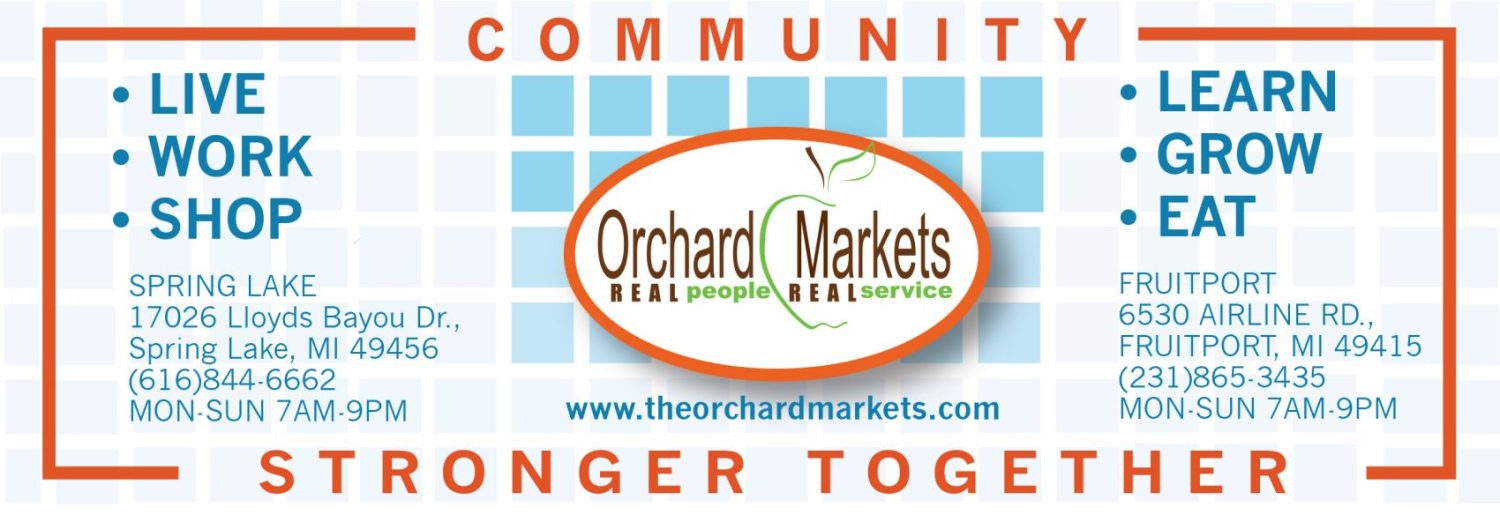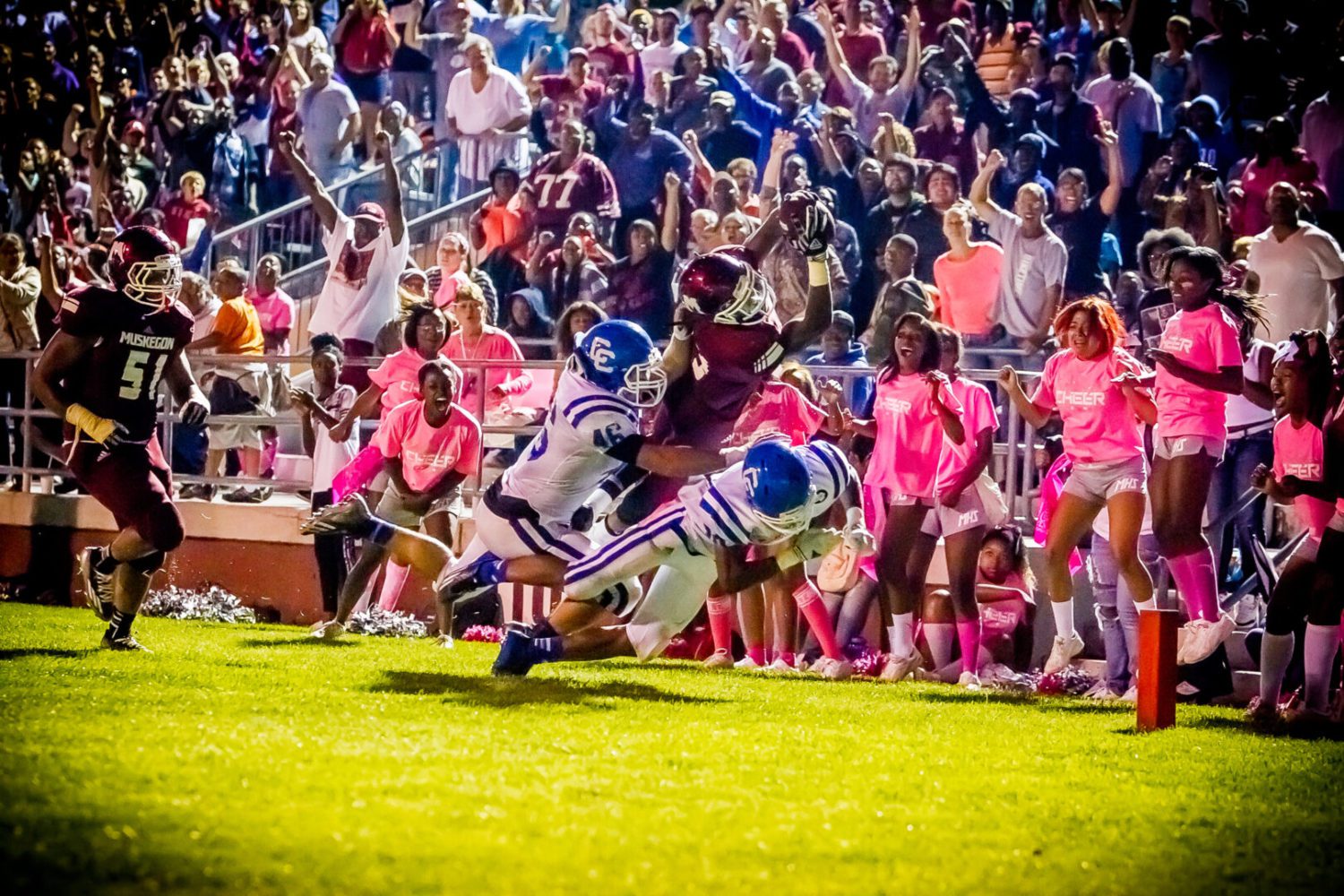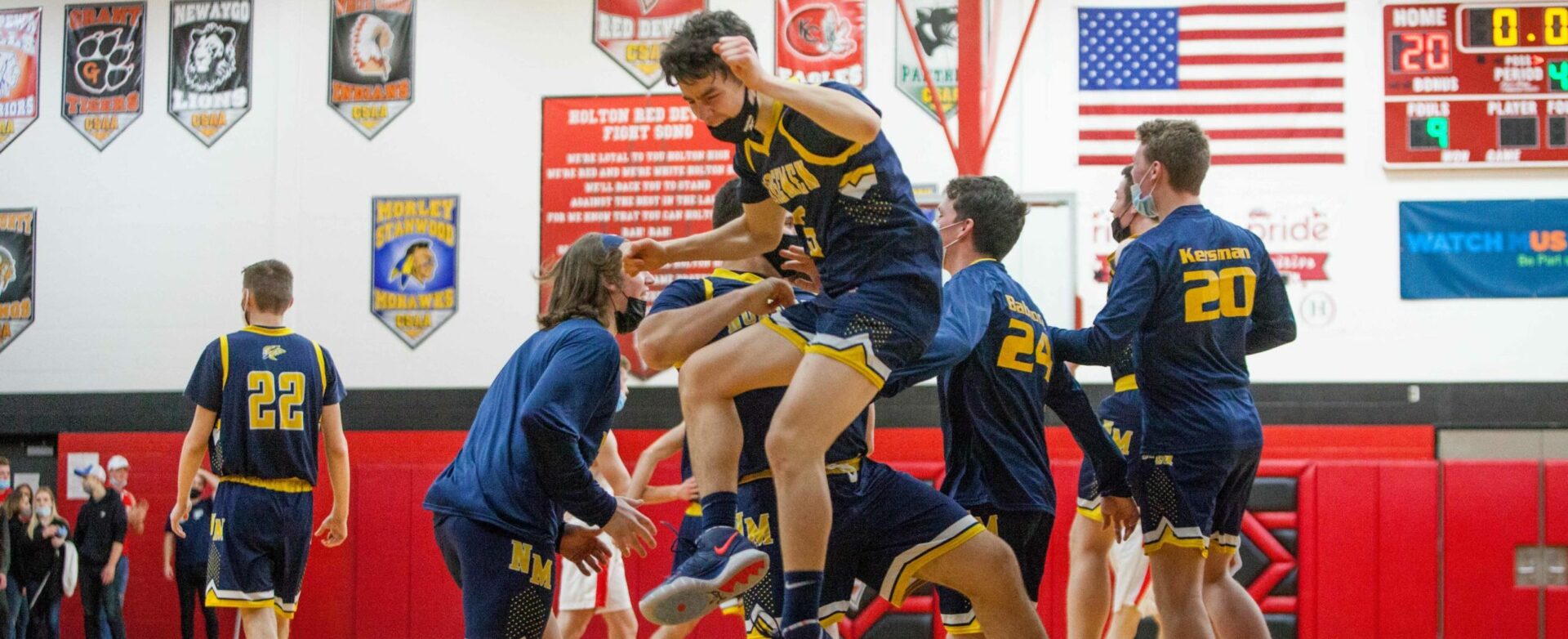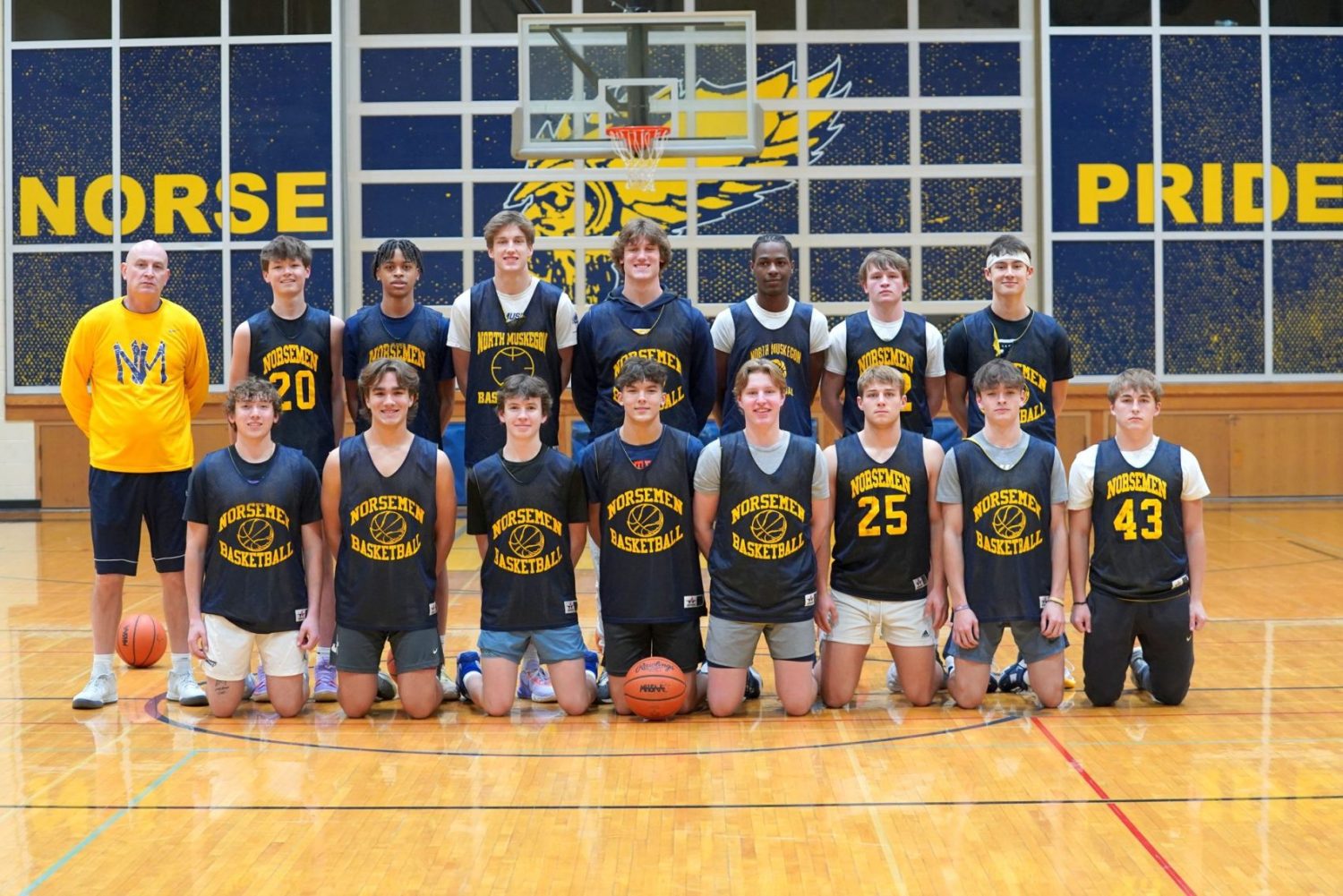By Ron Pesch
Local SportsJournal.com
MUSKEGON–Perplexed … There simply isn’t another word to describe the reaction of administrators when they came upon Calvin Johnson’s application for admittance to Dartmouth College in Hanover, NH.
Most potential students included lengthy essays explaining the multitude of reasons why they hoped to attend the Ivy League school.
Johnson’s essay included only three short sentences, delivered as bullet points.
-
Graduate from an Ivy League school
-
Play basketball for a Division I school
-
Attend Medical School
Johnson was a first-team Associated Press all-state basketball player at Oakridge High School as a senior in 1977 and had received football honorable mention all-state accolades from the Detroit Free Press that fall, even though he had chosen to play only a single season of varsity ball. In the spring, he earned a fifth-place finish in the long jump at the state track meet. He held athletic scholarship offers from other colleges, but he chose to apply to just one school.
Unlike so many others applying for entrance, he did not have advanced placement classes in his background – classes commonly found on the resumes of many Ivy applicants that came from the New England prep schools and suburban districts that emphasized Science, Technology, Engineering, and Mathematics (STEM) courses. He was not a legacy student with family members or parents who had graduated from the school. And he had to address the perception that, as an athlete, he simply wouldn’t be able to balance the workload required to achieve his goal to attend Med School.
“There were two Johnson’s who were All-State that year in Michigan,” said Gary Walters, who served as Calvin’s coach at Dartmouth during his first two years. “We got the 5-foot-9 Johnson. Michigan State got the 6-foot-9 Johnson.”
“So. Calvin comes to Dartmouth and freshman week all of the students had to meet with the Freshman Dean.
“I get a call from the Freshman Dean. ‘Gary, I have just talked to Mr. Calvin Johnson, who wants to major in pre-med. He has not had any formative courses that would indicate that this is an area that he should pursue.’ She was concerned that he was in over his head.
“I told her, ‘Gee, I didn’t realize that Calvin wanted to major in medicine. Send him down and let me talk to him.’”
Calvin headed to his coach’s office.
Quick, athletic, and an intense competitor, there was little question that Calvin could compete on the basketball court. Walters relayed the academic concerns and the challenges he would face. But Calvin was clear on his intentions.
“Coach, I want to be a doctor.”
“OK,” said Walters. “I’ll do everything I can to try to create a support system for you.”
“I called the Dean back,” recalled Walters, “I said, ‘Mr. Johnson wants to be a doctor. Let’s make sure we do everything we can to support his dream.’ And we did.”
Similarities
“In the spring of 1963, Gary Walters and the other students in Problems of American Democracy entered their classroom at Reading (Pa.) High one day to find the chalkboard hidden by hanging maps. “You’re probably wondering whether we’re having a pop quiz,” said their teacher, Pete Carril. “We’re not, but I have a surprise announcement.” With that, Carril, who doubled as Reading’s basketball coach, lifted the maps one by one to reveal words that would forever change one senior’s life: GARY WALTERS HAS BEEN ACCEPTED AT PRINCETON.
Sports Illustrated
December 10, 2001
It was clear that Walters saw similarities between himself and his future point guard.
Like Johnson, Walters had come from a blue-collar town where acceptance to an Ivy League school could hardly be imagined. Like Johnson, he had done well in high school but didn’t share the same educational opportunities that many of his peers at Princeton had experienced.
“I was in the bottom quarter of the class as it related to college board scores,” Waters recalled. “But college board scores themselves have been proven to be a false narrative. They don’t correlate with success in college. I knew that.”
At Princeton University, Walters was a three-time All-Ivy point guard.
“Three years after graduating with a degree in psychology,” noted SI, “the 23-year-old Walters became the youngest coach in NCAA history when Middlebury (VT) college hired him.”
In 1973, he became Carril’s basketball assistant at Princeton. Two years later, he was named Dartmouth’s head coach. Walters would later serve as Princeton’s Director of Athletics for two decades.
Focused on Fulfilling a Dream
Walters continued.
“So now we would be playing basketball on the road. On one of the trips, for example, we would have to play Cornell, then Columbia on successive nights. To drive from Dartmouth to Cornell, it’s a 5-hour ride. Then after we played that game, we then have to drive down to New York City (4 hours) to play Columbia, and then after that, have to drive all the way back to New Hampshire (another 4 hours) to get back to campus,” said Walters from his home in New Jersey. “I would look back – those were late trips – and there was one light on in the bus at the back. It was Calvin. He pursued that dream the same way that he played basketball – with incredible intensity and integrity. Calvin was admired by everybody on the team.”
As a senior at Dartmouth, Johnson co-captained the Big Green during the 1980-81 season, finishing second on the team in scoring and second-overall in assists in the Ivy League. Most impressively, with a biochemistry major and as a Pre-Med student, he was named All-Academic. A 1985 graduate of Dartmouth Medical School, Johnson completed his residency in 1989 in anesthesia at Massachusetts General Hospital, Harvard Medical School.
Back home, the families of John and Rose Swinburne, and Jack and Julie Schugars had treated Calvin as one of their own. They beamed with pride. At Oakridge, Swinburne was Johnson’s track coach. Calvin was 10 when his family first moved into the area. Johnson first met Schugars when he signed up for youth baseball and football.
“These two families are the reason I’m where I am today,” states Johnston.
Role Model
Among Johnson’s many accomplishments he is a Professor of Anesthesiology at Cedars Sinai Medical Center in Los Angeles, triple board certified by:
-
American Board of Anesthesiology in General Anesthesia – includes adult cardiac anesthesia
-
American Board of Pediatric Anesthesia – includes pediatric cardiac anesthesia
-
American Board of Pain Medicine – includes adult and pediatric pain
Less than 1 percent of all physicians in all specialties in the USA hold such a distinction.
Since January of 2020, Johnson volunteered to serve as one of the 20-member Cedars Sinai’s Covid Line Team and their Covid Airway Team risking their lives to save the most critically ill COVID patients. In addition, he appears regularly on NPR broadcasts, discussing vaccine hesitancy among Americans, including Black and Latino communities and among women during pregnancy.
“For kids coming up to see what can happen if you put your mind to it, he’s a role model,” concludes Walters. “His courage, his guts, and his pursuit of his dream are inspiring. For me, speaking of the Michigan Johnsons, Magic may be 6-9, but Calvin is 6-10.”
Saturday, June 18th at the Trinity Health Arena
All multi-sport athletes in high school, Johnson, along with Grand Haven’s Abby (Cole) Hatch, Muskegon Catholic’s Mike Ribecky, and Ravenna’s Todd Herremans comprise the incoming class, along with Fruitport’s Ken Erny, this year’s Gene Young Distinguished Service Award honoree.
For the second straight year, the 35th induction ceremony and banquet will be held at Trinity Health Arena in downtown Muskegon, on Saturday, June 18th. Tickets for the event are available for purchase at http://mashf.com/HFInduction.htm.
Abby (Cole) Hatch
Cole began as a tennis player, following in the footsteps of her mom, who had played in high school. But Abby gave up the sport after her freshman year when she fell in love with volleyball. At Grand Haven, she excelled in both volleyball and basketball, and in an era of specialization, she is one of only two athletes to be nominated for Michigan’s Miss Basketball and Miss Volleyball awards, given annually to the state’s top seniors. Runner-up for the volleyball award, Cole led Grand Haven to the state semifinals in 2012, the fall of her senior year. She helped lead the Buccaneers to back-to-back Class A MHSAA basketball titles in 2012 and 2013, earning All-State honors while finishing third on the ballot for Miss Basketball.
Highly recruited, in August before her junior year, she committed to continue her academic and athletic career at the University of Michigan, with plans to play volleyball for the Wolverines. There, as a middle blocker, she was named to the Big Ten All-Freshmen team, earned All-Big Ten honors three times, and twice was named a second-team All-American by the American Volleyball Coaches Association. With available eligibility, at her request, Cole was added to Michigan’s Women’s basketball squad for the 2016-17 season, but a lower leg injury prevented her from playing.
Named a Muskegon Area Sports Hall of Fame Scholar/Athlete in 2013, she now enters the Hall for her accomplishments beyond high school, joining Nate McLouth as the first individuals to be so honored. Married to Austin Hatch, a former University of Michigan basketball player, Cole is the Hall’s youngest-ever inductee.
Mike ‘Bunny’ Ribecky
Ribecky, a lineman at Muskegon Catholic Central, was the single unanimous selection on the 1972 Lake Michigan Athletic Conference 25-man all-league squad. The Associated Press included him on their first-team Class B All-State squad that same fall. The 6-foot-3, 220-pound tackle signed a letter of intent with Western Michigan University in April 1973. Ribecky earned second team All-Mid-American honors as a senior, helping to open holes for WMU running back Jerome Persell, who ended the year second in the nation in rushing behind 1976 Heisman Trophy winner Tony Dorsett.
Today, Ribecky is best known as “coach.” A pillar of the football program for over 40 years, he has coached the lines for Muskegon Catholic, serving as an assistant under head coaches Roger Chiaverini, Pete Kutches, Ken Diamond, Dean Jewett, Mike Holmes, and Steve Czerwon.
“Assistants want to come and they want to coach,” Ribecky told the Local Sports Journal back in 2017. “They don’t want to deal with parents or the media. The head coach can do that.”
During the span, MCC has made 15 appearances in the MHSAA 11-player football finals, winning 12 championships between 1980 and 2016.
Todd Herremans
An offensive lineman, Herremans spent 10 of his 11 years in the National Football League in Philadelphia after being drafted by the Eagles, who traded up in the 4th round of the 2005 annual draft to select him. A starter in 126 of 135 games, in 2008 versus Seattle, and in 2010 against Dallas, he scored touchdowns on lineman-eligible plays, making him one of 14 linemen with two or more touchdown receptions during their NFL career.
At Ravenna, Herremans earned Division 6 All-State honors from the Detroit Free Press as a senior defensive lineman in 2000. Signed by Saginaw Valley State as an offensive lineman, the 6-foot-6, 275-pound Herremans started all four seasons for the Cardinals, helping the team to a 39-9 record, (including the team’s first undefeated regular season in school history in 2003). In 2004 as a senior, he earned Little All-American honors, designed by the Associated Press to recognize players from small colleges and universities – a tradition that dated back to 1934. In 2011, Herremans and his family gave back to the University, financing a new weight room at SVSU.
Ken Erny
A native of Burlington, NJ, and a 1978 alumnus of Cedarville (OH) University, where he played tennis, Erny came to the area following graduation. He was initially hired by Fruitport Faith Christian to teach and begin a soccer program at the school. In 1990, Fruitport Community Schools hired Erny to work full-time with their Community Education program. In addition, he was named coach of the high school’s first soccer team. In 1996, he accepted the position as the school’s athletic director.
Erny continued coaching soccer, guiding the Trojans for 19 years, compiling a 242-133-20 record, and a 335-182-32 mark overall with 10 seasons at Faith Christian. In 2015, he was honored with induction into the Michigan High School Soccer Coaches Association Hall of Fame.
Diagnosed with the early stages of Amyotrophic Lateral Sclerosis (ALS), Erny retired from Fruitport Community Schools at the end of August 2020. That October, the district fittingly christened its soccer field in honor of their longtime coach and athletic director.